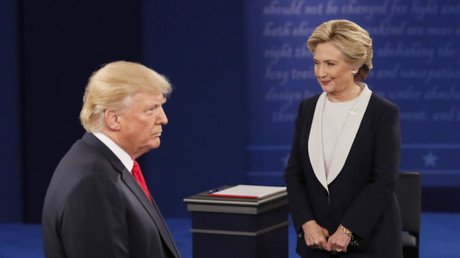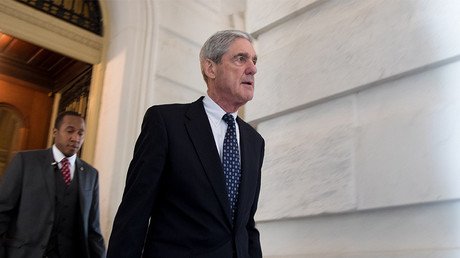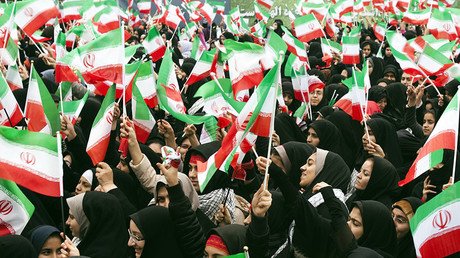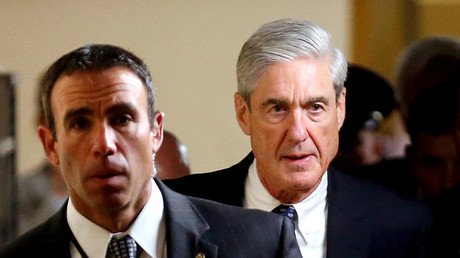Indictment of Russians over US election meddling is case of pot calling the kettle black
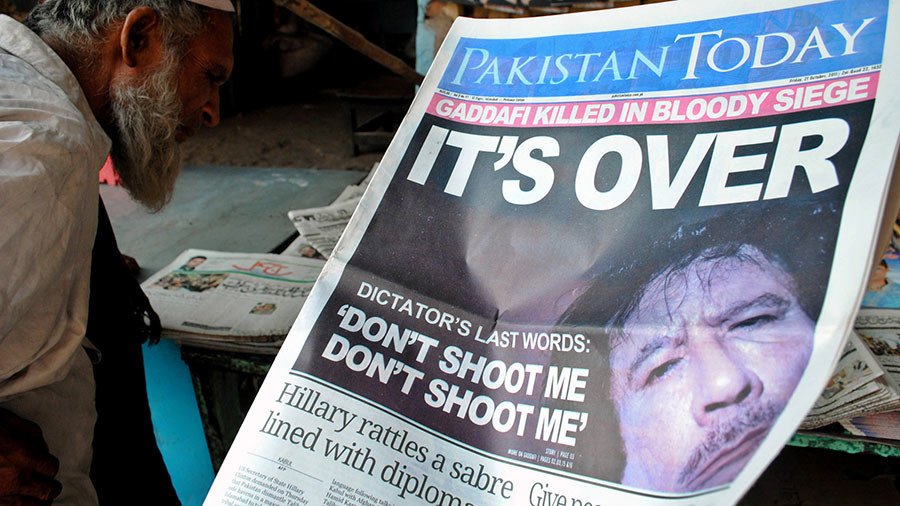
If the US federal grand jury indicts 13 Russians for meddling in the US vote with “no allegations” that it influenced the outcome, then the investigation by Mueller should disband and take its place on the garbage heap of history.
On the face of it, to suggest that 13 Russian individuals attempted to alter the course of the US democratic election process is absolutely laughable, considering that the US mainstream media had teamed up with the Hillary Clinton campaign to barrage Americans daily with relentless stories of alleged Russian collusion with the campaign of Donald Trump to alter the 2016 election outcome.
To date, no such collusion has been uncovered.
If only 13 people allegedly attempted to alter the election outcome, you have to ask yourself: Is that all there is?
So, 13 Russians allegedly planted ideas on popular social media, such as Facebook, Twitter, Instagram and YouTube, where crazy ideas already abound. There never was any evidence in the indictment that even suggested any Russian attempt to manipulate through hacking voting stations. The alleged disinformation campaign amounted to calls for demonstrations or the printing of ads, which in many instances were hilarious.
Certainly, discerning and naturally skeptical Americans know the difference and have never thought that alternative ideas were a threat to the US democratic system, whether it’s by Russians or even American billionaires who use their fortunes to try and alter the US political process.
Indeed, ongoing congressional investigations reveal something even more sinister in the US democratic process. Namely, that the Clinton campaign paid for a so-called Russian dossier to undermine the Trump campaign and it was done in actual collusion with high-level officials of the Justice Department and the Federal Bureau of Investigation.
This is unprecedented in US politics and is tantamount to the action of a police state. And it was perpetrated by Democrats who concocted the Russian collusion scheme to discredit the legitimacy of the Trump election.
If the US was inferring in the indictment that 13 Russian individuals sought to undermine the entire American democratic process, it is a clear case of the pot calling the kettle black, since there are stark examples of past US efforts to interfere in elections and, indeed, overthrow democratically elected governments of other countries.
Many of those past instances continue to have a major adverse impact on US influence in foreign policy. In 1953, for example, the Central Intelligence Agency was involved in the violent overthrow of the democratically elected Iranian Prime Minister Mohammad Mossadegh. The impact culminated in the 1979 Iranian Revolution and has affected what there is of US-Iranian relations to this day.
During the administration of President Richard Nixon, he and his then-national security advisor, Henry Kissinger, were involved in the 1973 coup of democratically elected Chilean President Salvador Allende. Once again, the CIA was involved in the Chilean military’s ousting of Allende, which then committed atrocities on its own citizens. In his 90s today, Kissinger continues to give President Trump foreign policy advice.
Fast-forward to modern-day efforts to affect the outcome of elections in other countries, former president Barack Obama’s repeated efforts to interfere in the elections of other nations are more numerous than most past US presidents. Ironically, the mainstream media played down those efforts.
Among those examples, during the 2015 election in Israel, the Obama administration illegally attempted to prevent the re-election of Prime Minister Benjamin Netanyahu due to major personal and policy differences. The administration covertly funneled State Department grants to opposition groups to the tune of some $350,000, including a group called the One Voice Movement. One of Obama’s field directors from his last presidential campaign actually oversaw the operation in an effort to topple the Netanyahu government. As usual, no one was held accountable.
In 2014, the Obama administration was instrumental in supporting and helping to finance the violent overthrow of the democratically elected government of Ukrainian President Viktor Yanukovych.
To further underscore Obama’s involvement in the internal affairs of another country, the American Spectator reported that the government watchdog group, Judicial Watch, had obtained government documents showing that “the US government has quietly spent millions of taxpayer dollars to destabilize the democratically elected, center-right government in Macedonia by colluding with leftwing billionaire philanthropist George Soros.” Judicial Watch further stated that then-Obama ambassador to Macedonia, Jeff Baily, sought to funnel millions of dollars from the State Department and USAID to groups created by Soros to overthrow the Macedonian government.
In 2011, Obama was instrumental in the ousting of then-Egyptian President Hosni Mubarak to push the election of Muslim Brotherhood leader, Mohammed Morsi.
A secular leader, Mubarak was ousted, similar to Obama’s efforts along with his then-Secretary of State, Hillary Clinton, in the violent military overthrow of Muammar Gaddafi in Libya in 2011. Based on what is now known, Clinton’s hatchet man, Sidney Blumenthal, had helped provide information particularly on potential oil contracts in the country, which prompted her to convince an at-first reluctant Obama to take military action with a “coalition of the willing” from among NATO countries for regime change in Libya.
Last, but not least, is the example of former President George W. Bush’s 2003 invasion of Iraq, which led to the violent overthrow of Iraqi President Saddam Hussein. As in the case of the 1953 coup in Iran, the US experience in Iraq has had a lasting impact on American influence not only in that country but throughout the entire Middle East.
Ironically, US law prohibits the use of tax dollars to influence foreign elections. Clearly, if America doesn’t want interference in its own democratic process, it shouldn’t be doing it to other countries by overthrowing their governments and inflicting pain and suffering on the lives of millions of people.
The statements, views and opinions expressed in this column are solely those of the author and do not necessarily represent those of RT.

